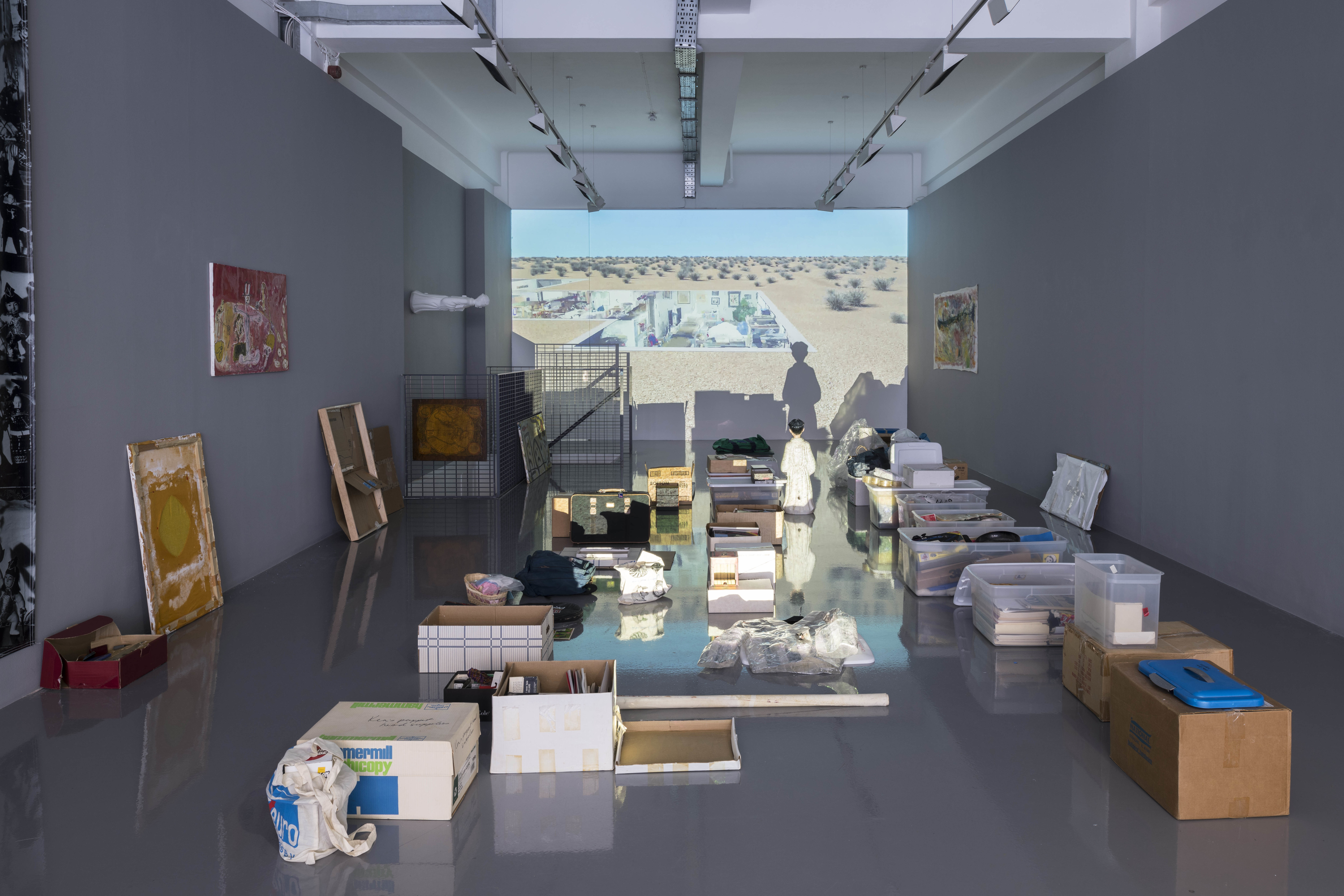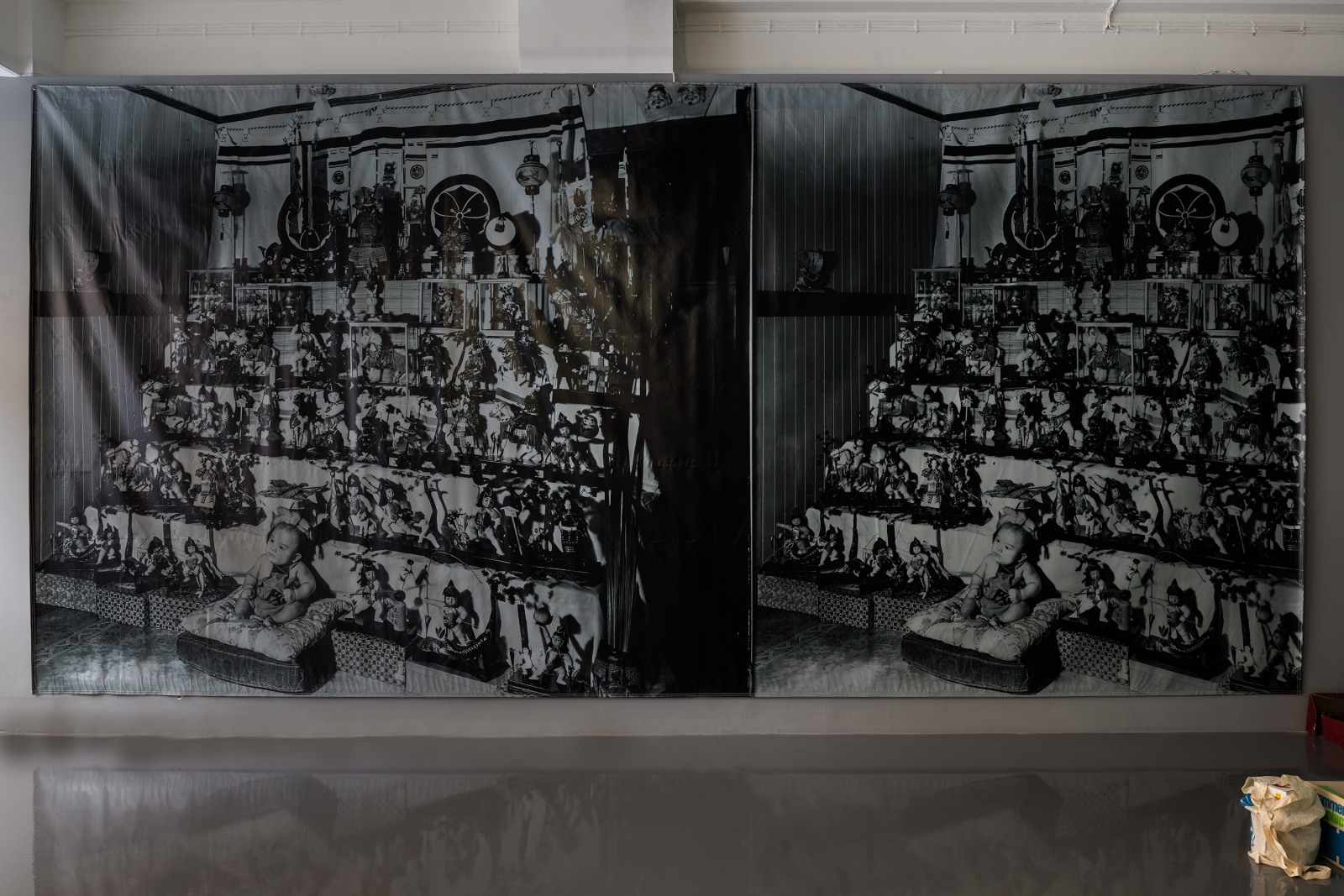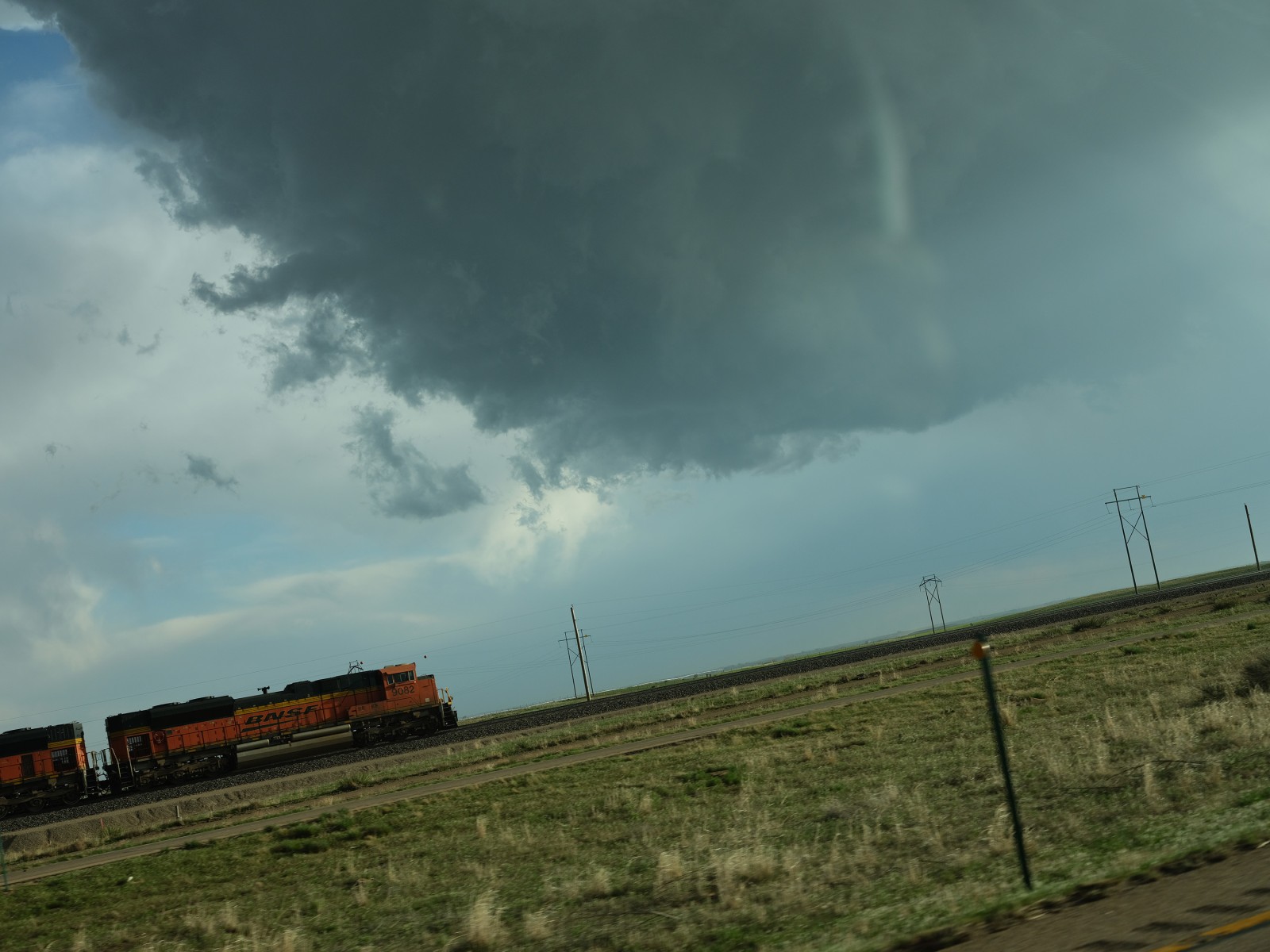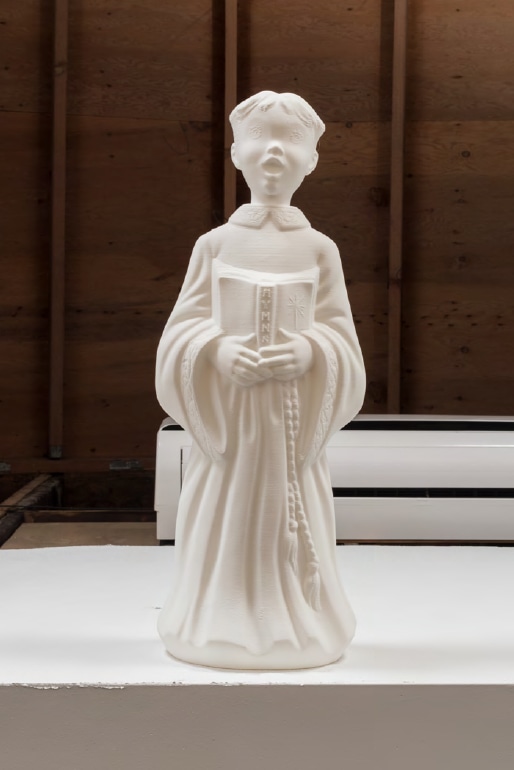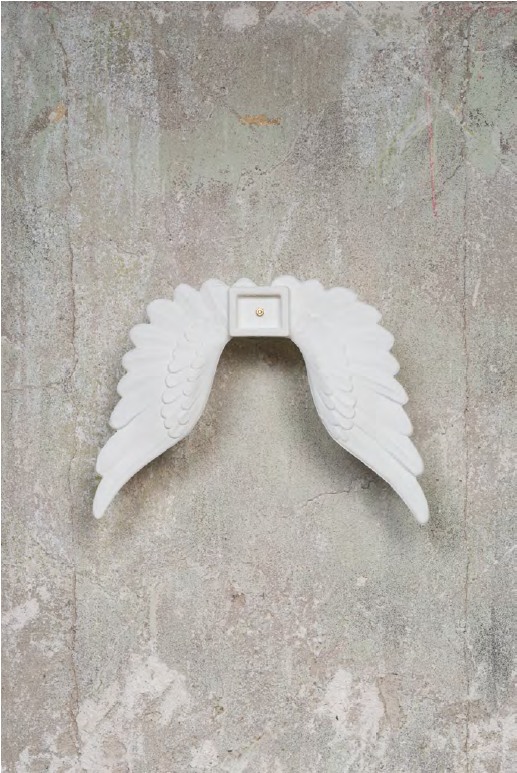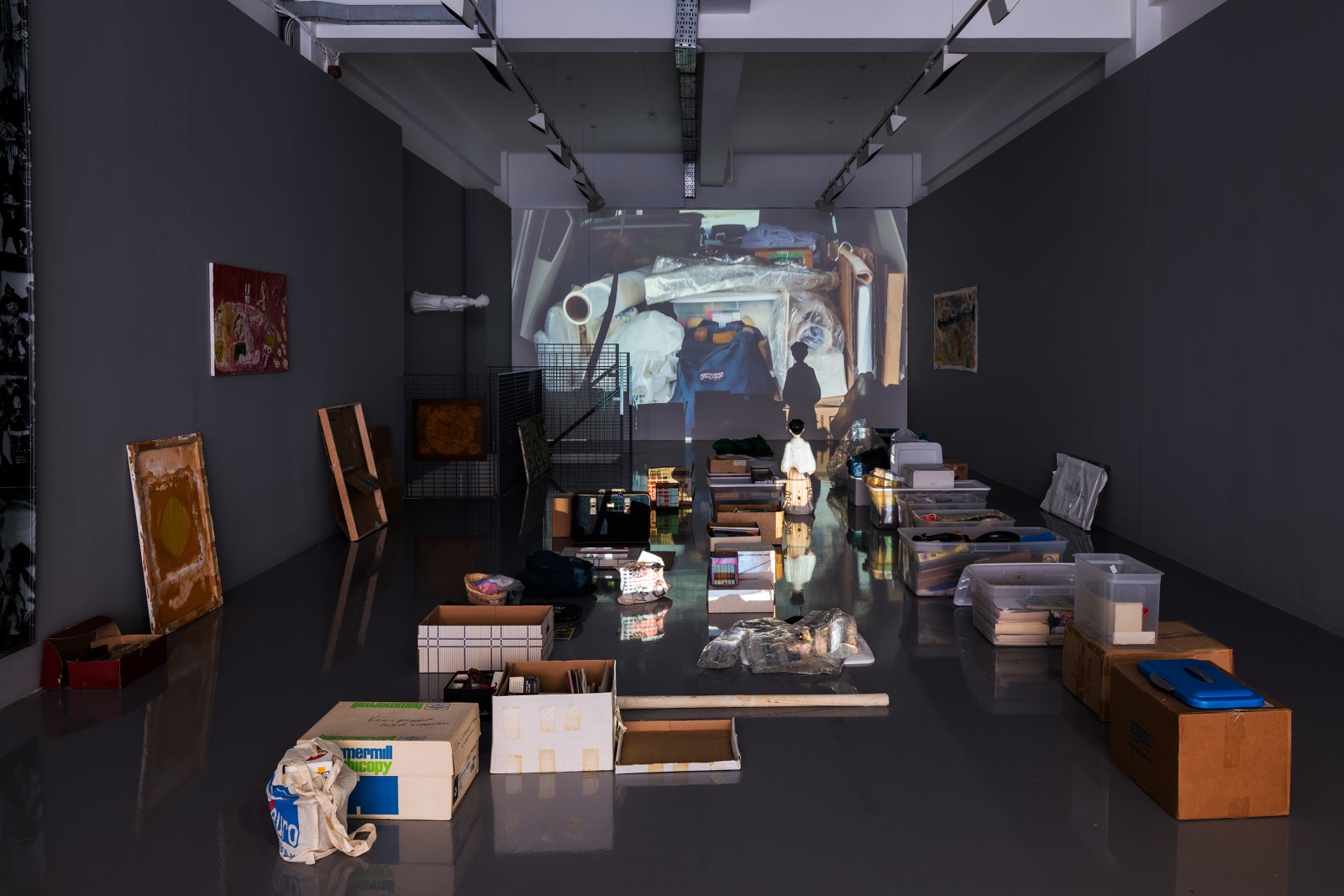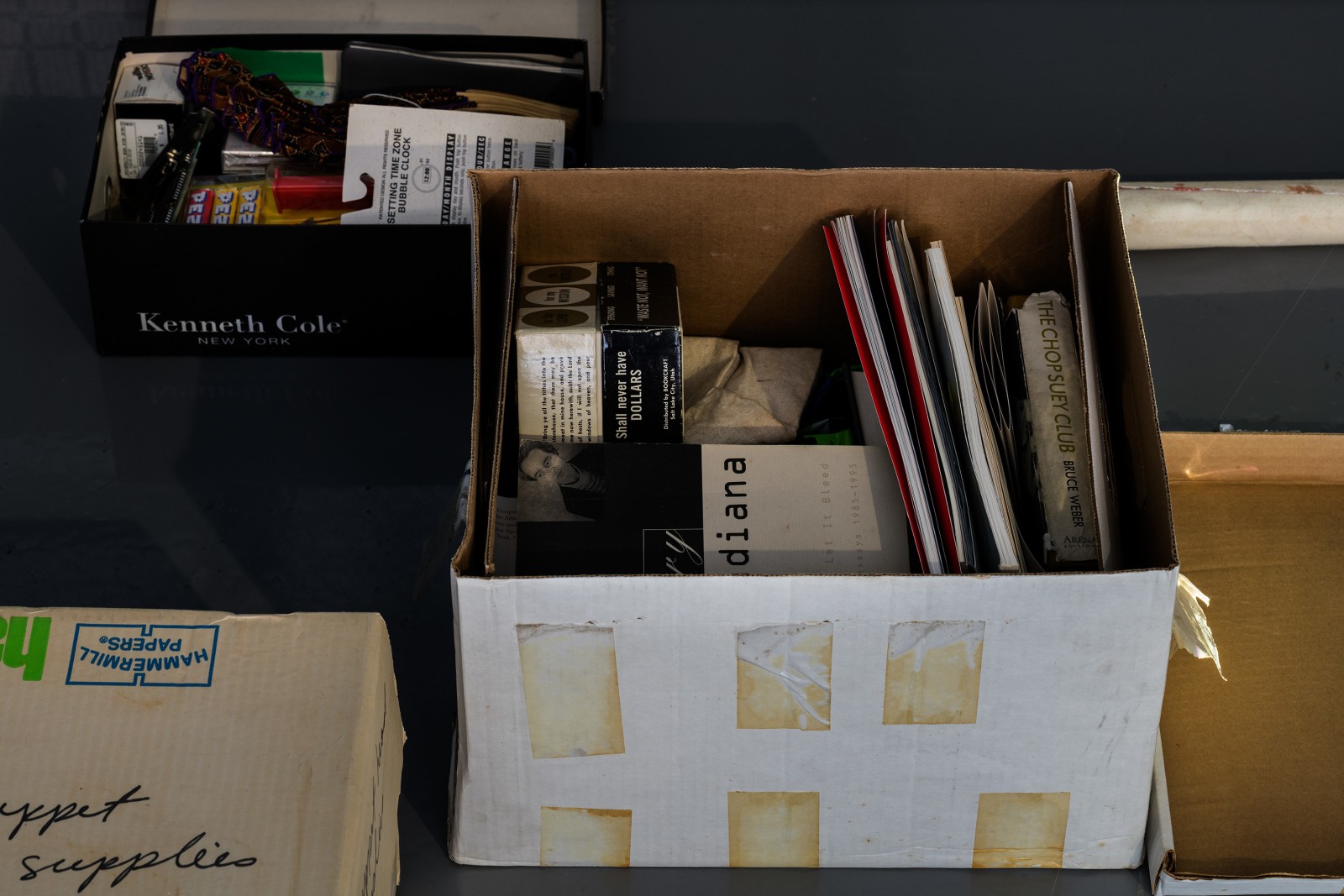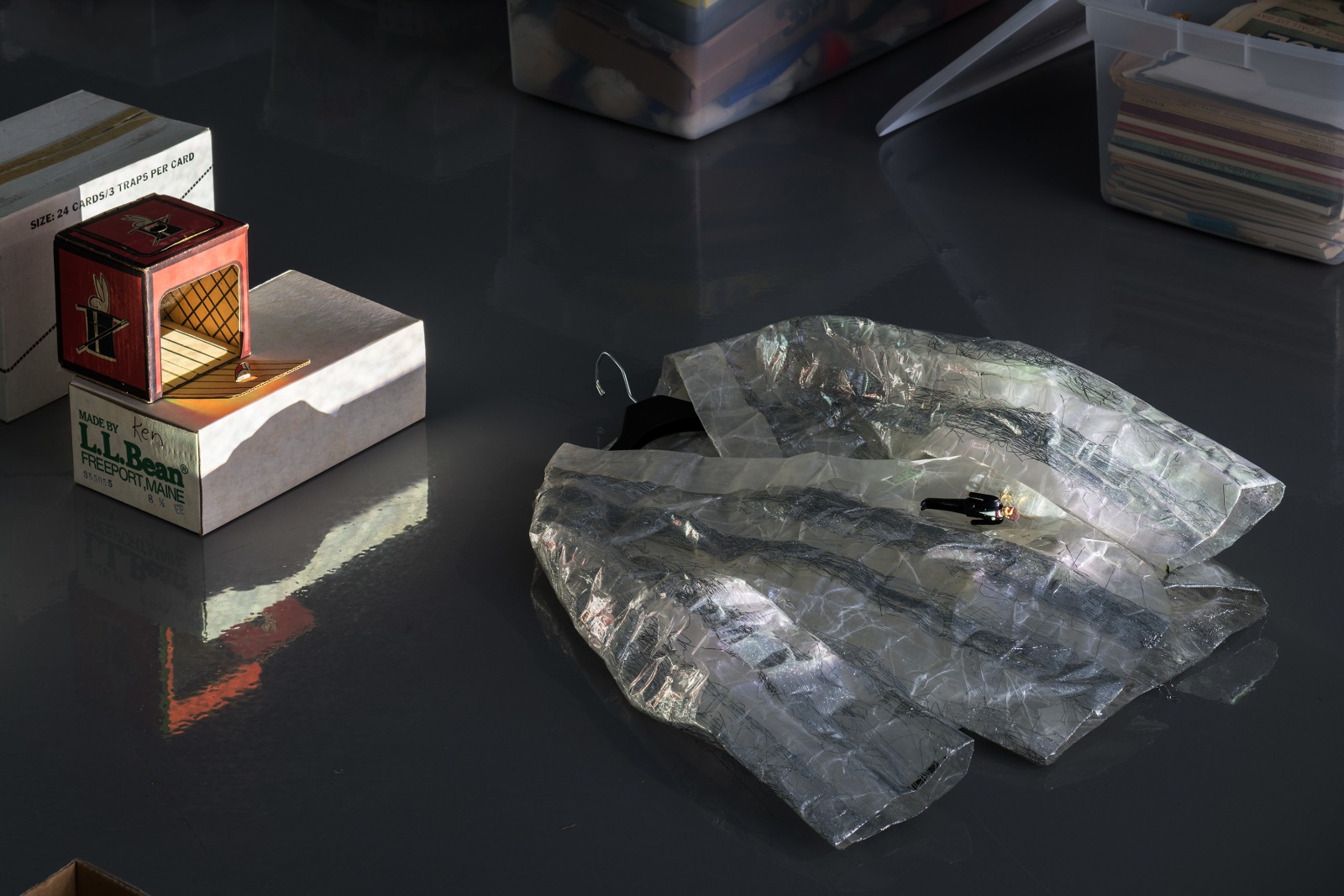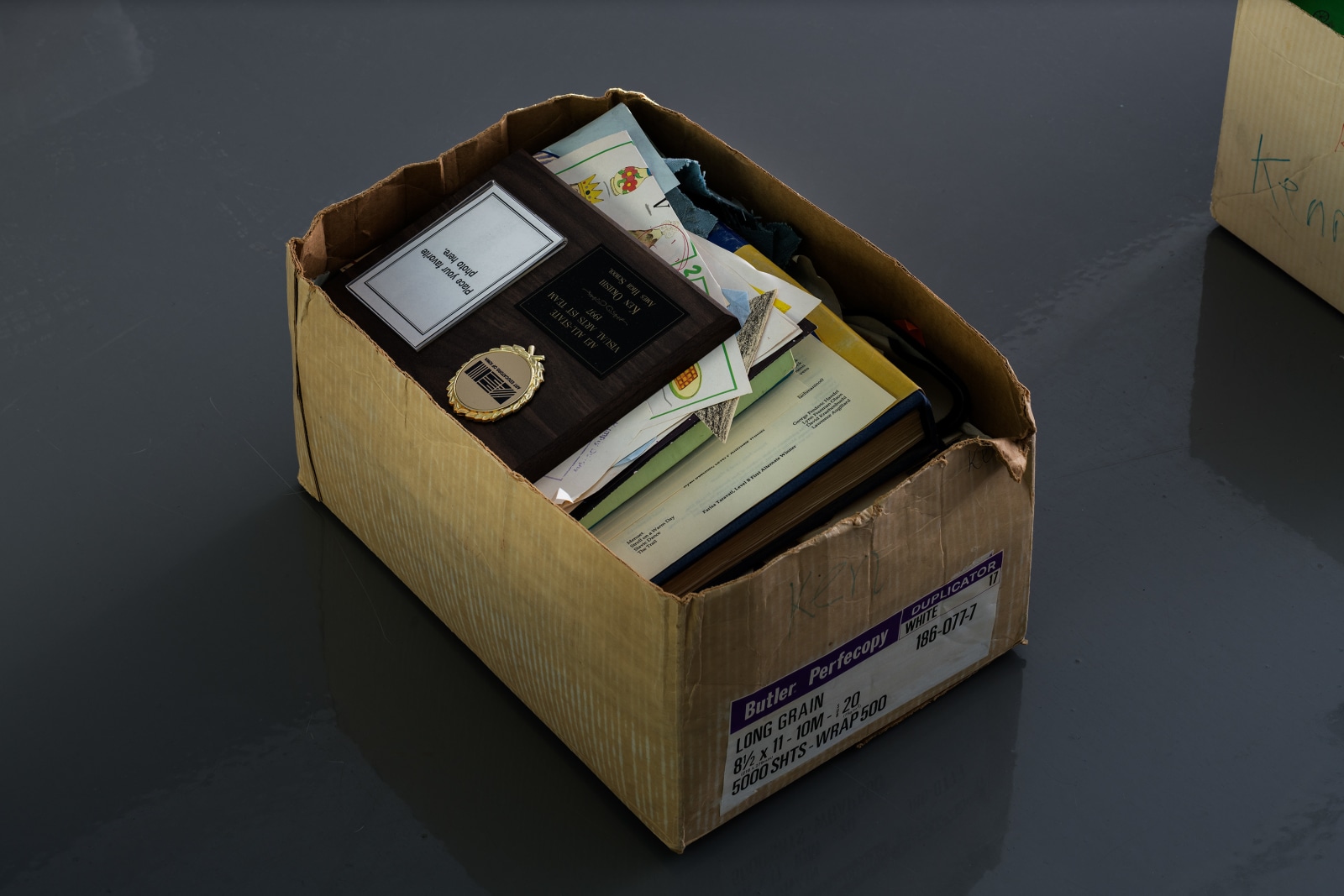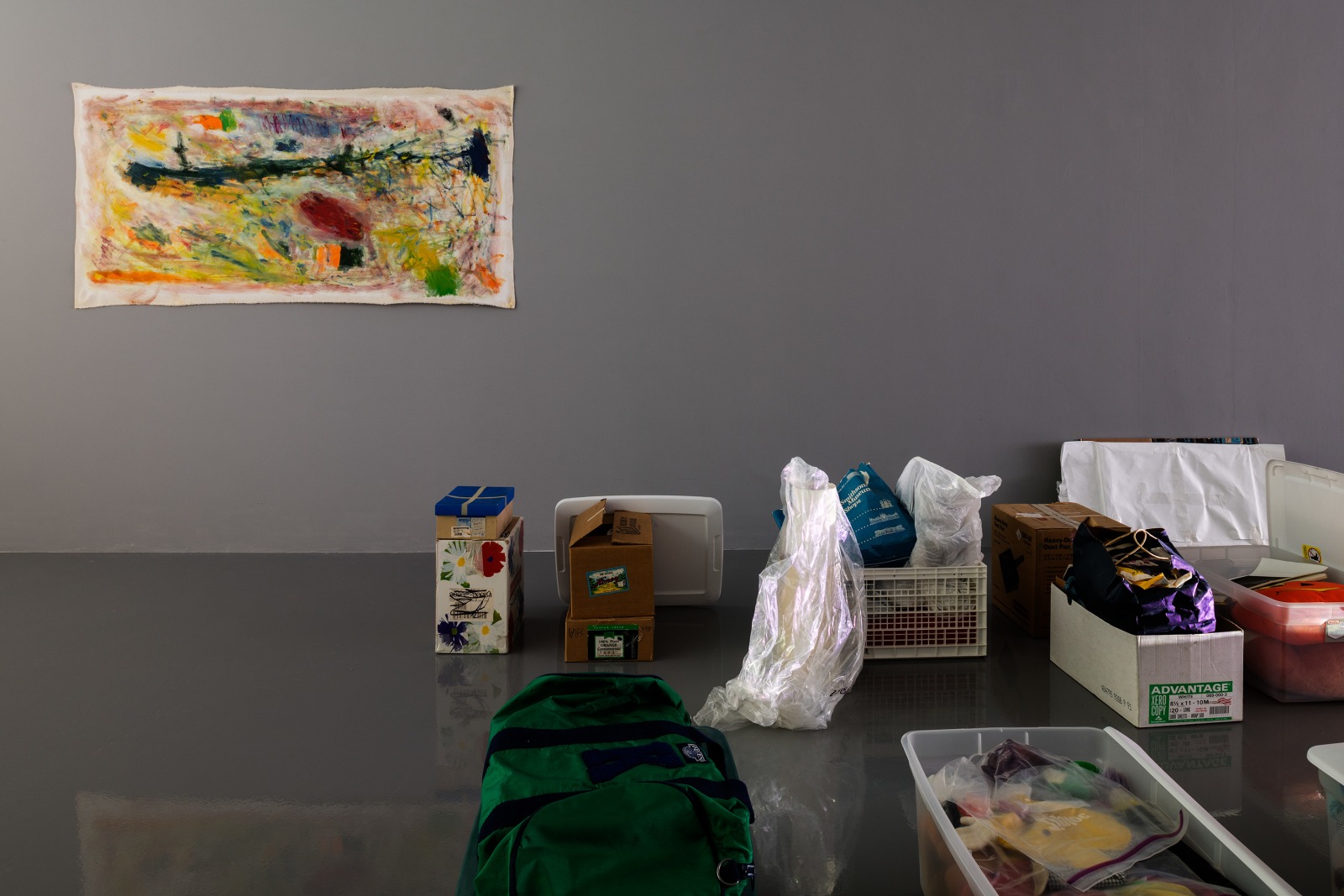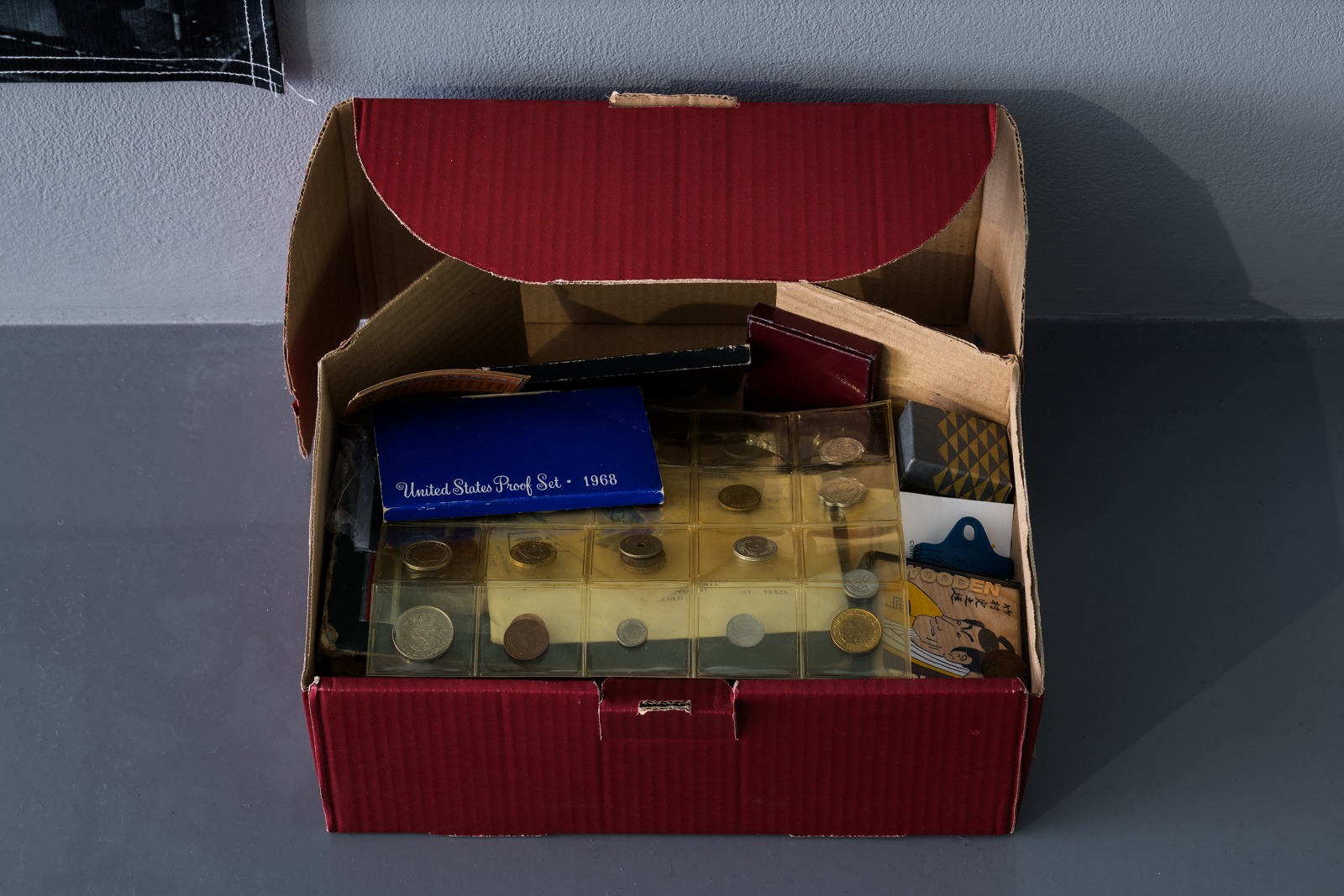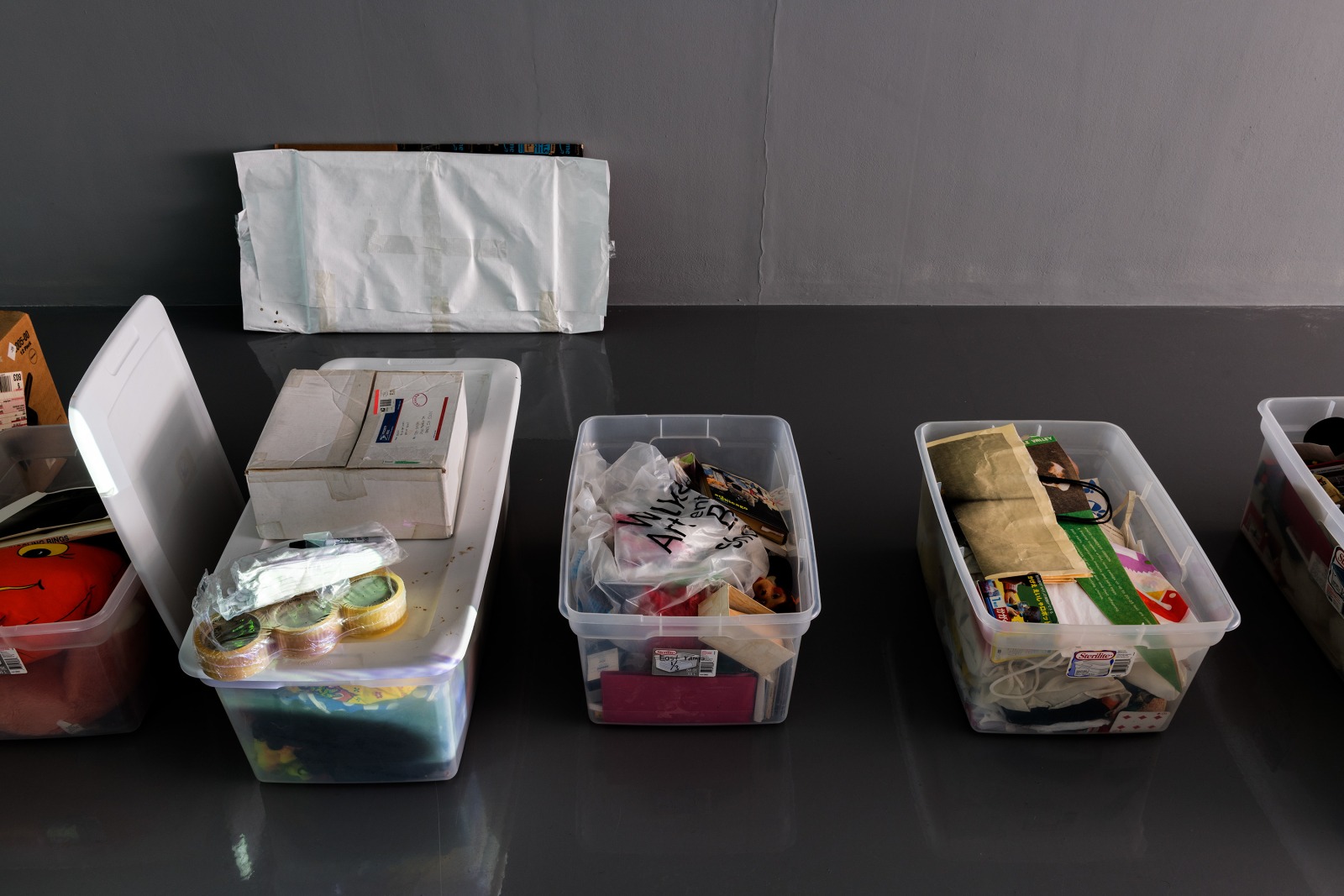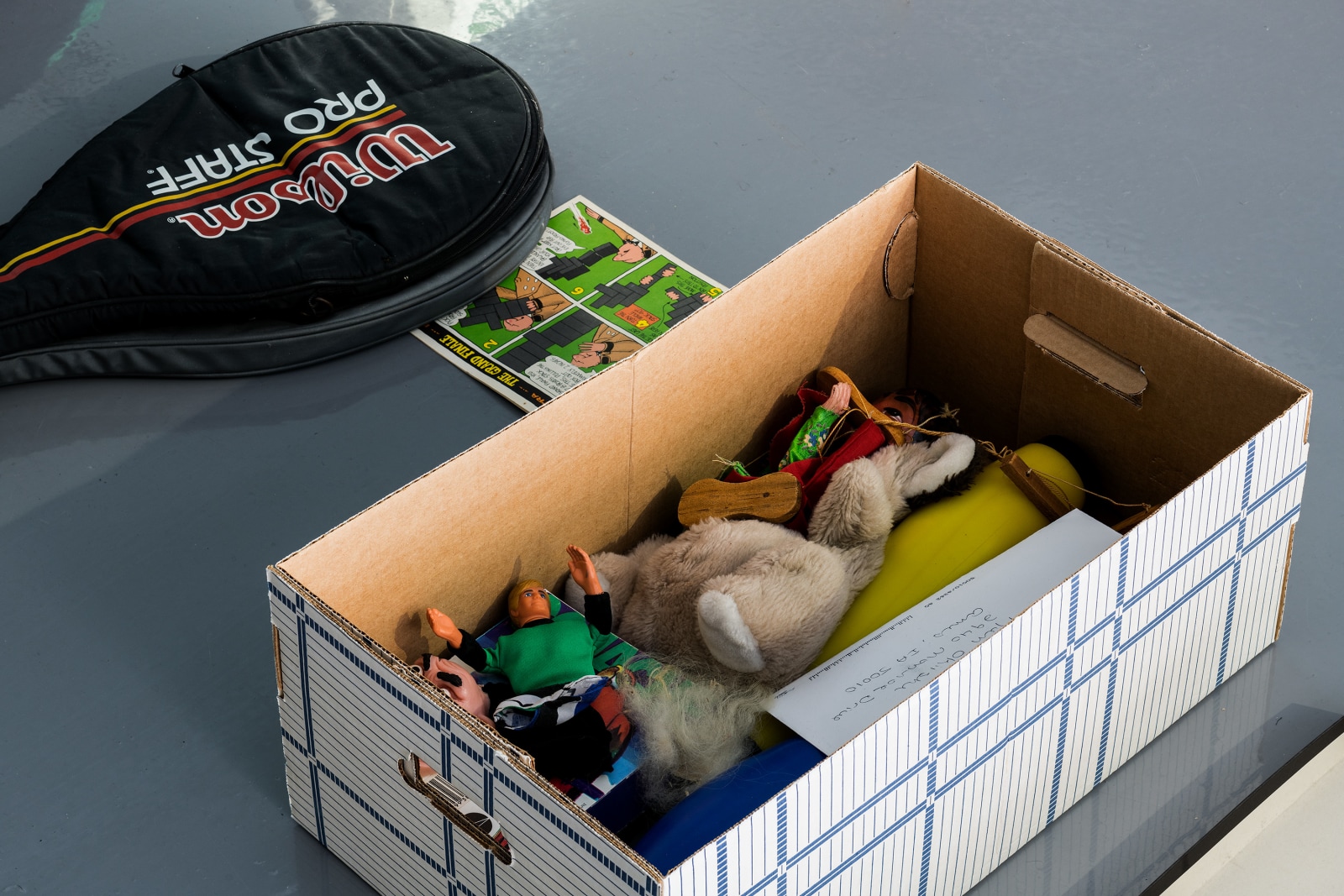Overview
A Model Childhood is a meditation on the artist’s place of birth, the USA, as much as the concept of home itself, that place where one literally, inescapably comes from. For some people from migration backgrounds, a place of birth, in each generation, is insistently demarcated as a place that is not a home.
Against the backdrop of the emergent political orders in the USA, Europe and the UK, A Model Childhood brings four generations of migration and immigration histories into contact in the present (from the 1880s floating world of merchant-class Japan in tropical-melancholy Hawaii to Trump's neo-fascist-style experiments in globalization-denial).
Performing a breakdown in historical/psychological chronology and logic that has emerged as a method of analysis on the left as it reacts to the seemingly impossible paradigm shifts enacted by the far right, Okiishi searches for "trans-historical patterns of xenophobia and racism," "intersectional identity" and "intergenerational trauma"-but, as he has consistently approached the live-processing demanded of the contemporary artist, he both over- and under-performs what is required of him. Do you hail the call of interpellation, or do you run away screaming? Or do you do both at the same time?
Works in the exhibition include:
- A Model Childhood, Honolulu, Hawaii, circa 1940. A photograph, blown up to billboard size, of the artist's father's first Boys' Day celebration in 1940 in Honolulu, Hawaii, featuring 50 dolls modelling the life of a warrior. After the bombing of Pearl Harbor the next year, the artist's grandfather threw all of the family's relics from Japan into the ocean. The artists' grandparents, who were born in Hawaii at the beginning of the 20th century, and had lived a rather free-wheeling continuation of the "floating world" as it developed in new terrains, were suddenly confronted with a demand to rationalize their identities as overtly patriotic "loyal" Americans-to play-act an entirely contingent identity based on what is expected.
- A "family history video for insurance purposes," made by the artist's mother, starring the artist's father (who is pictured as a baby in the 1940 photograph from Honolulu, Hawaii). This video documents every object in the Okiishi household circa 2009.
- A Model Childhood, the mainland (Ames, Iowa), circa 1978-1997. The entire contents of the artist's childhood, saved in plastic storage bins and cardboard boxes in the Okiishi basement, 2940 Monroe Drive, Ames, Iowa. Driven to Los Angles in May 2018 by the artist, through a dust storm in Nebraska, the mountains of Colorado and the deserts of Utah, with a stop at the site of the Topaz "relocation camp" (the euphemism used for prison/concentrations camps of American citizen children and their parents of Japanese extraction during WWII). The tradition of pilgrimage to "camp" is not common among Americans of Japanese descent. No one really talks about traumatic history; these things disappear. Okiishi generated a point-cloud scan, by a company specializing in forensic models of crime scenes, of his childhood home's ever-expanding auto-archive: a basement that invests all objects that have passed through his parents' home with the obsessive potential importance of key-strokes recorded on an NSA data server.
-Photographs taken from the car while driving these childhood objects across the USA-thinking about everything that is crashing in the present moment. The modes of American (USA) landscape and road-trip photography are recoded via an eye that no longer sees the ideological function of those modes of image production as related to "expanse" and "freedom." American vernacular architecture starts to look like prison architecture, the endless landscape crumbles in infrastructural disarray, the sun becomes a void.

